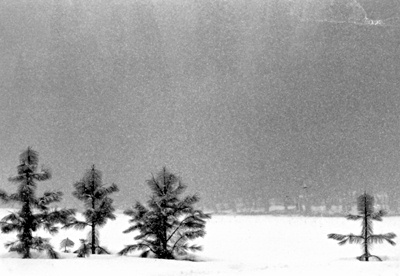All Nonfiction
- Bullying
- Books
- Academic
- Author Interviews
- Celebrity interviews
- College Articles
- College Essays
- Educator of the Year
- Heroes
- Interviews
- Memoir
- Personal Experience
- Sports
- Travel & Culture
All Opinions
- Bullying
- Current Events / Politics
- Discrimination
- Drugs / Alcohol / Smoking
- Entertainment / Celebrities
- Environment
- Love / Relationships
- Movies / Music / TV
- Pop Culture / Trends
- School / College
- Social Issues / Civics
- Spirituality / Religion
- Sports / Hobbies
All Hot Topics
- Bullying
- Community Service
- Environment
- Health
- Letters to the Editor
- Pride & Prejudice
- What Matters
- Back
Summer Guide
- Program Links
- Program Reviews
- Back
College Guide
- College Links
- College Reviews
- College Essays
- College Articles
- Back
My Lonesome Wonderland MAG
Dawn’s last sunlight daggers dripped through gaps in the grizzled ash-leaf maple. The day was languishing slowly, turning first a chalky white, then a pigeon-colored gray. Along the pallid backdrop of the calm lake my houseparent moved like a paper cut-out, undoubtedly lecturing a tired ear in her staccato Jamaican accent on the nuisance of my brief, unannounced escapade. Ensconced within the mossy cushions of my arbor, seconds slowed and stretched. Here, answers that normally slipped through my teenage fingertips untangled themselves in retrospective ruminations. Today’s topic: the elusive and inconclusive nature of my childhood. With the nostalgia of a high school senior I leafed through old and jaded memories.
Flashback to a German airport, a young boy with unkempt John Lennon hair and muddy oblong frames waves apprehensively and flashes an unsure smile. His parents’ saline whisper of “Wir werden dich immer lieb haben” (“We will always love you”) lingers like a weight on his senses.
Back then the world glowed with the hope of new beginnings, and the horizon somehow shone a more promising shade of pink. Little could I guess what it meant to sacrifice my childhood for a precariously uncertain future of college tennis.
In the first few years, the humdrum choreography of my daily dance tumbled from early rises to bone-weary nights, a blend of monomaniacal banality and the fearful adrenaline highs of the gamble. I felt like a middle-aged man stuck in traffic.
Alone in this new world of American football, Southern twang, and eight sweaty roommates following the same hazy dream of playing tennis in college, my shyness and foreignness placed me on the outer social fringe. I was on an unconnected hanging bridge, slouched at the edges in a frown.
In those early years my only respite came in the eternal stories of Haruki Murakami and Pablo Neruda. A translucent fabric would dim the lights and faces around me, and I would enter the phonaesthetic jungle of Nabokov, the surreal inversions of Kafka, and the boundless fantasies of Carroll’s wonderland.
The former triteness and arbitrariness of my actions soon became beautifully familiar, and while my day’s motions remained unchanged, the eyes with which I viewed them now saw wonder in the idiosyncrasies of my minutia. I hoped, in the words of John Updike, to “make beautiful the mundane,” and so I did, lone king of my castle of papier mâché. My life gained an extra dimension, and I grew and healed vicarious scars in my lonesome wonderland.
This fictive world was an escape from the anxieties of my childhood. But this sedation from the problems around me never healed anything. I was still alone, still drifting. What eventually saved me from further snorkeling through life in my mind was a chance encounter with a sad child.
As I sauntered with glazed eyes through the hallway, I spotted the glimmer of a face I wore in lonelier times on a young girl. She had shoulder-length blond hair and a blue and white dotted dress. I stepped out of my self-absorbed wonderland and talked to her about her expectations, hopes, and fears. Slowly, like water might climb paper on an acrid day, my two worlds bled into each other. An unspoken tension eased in her, as if a simple conversation burned away a fragment of her teenage angst. Through all my mental excursions into unreal worlds, I could connect to her fears and help heal them, as all my fictitious surrogate parents had guided me through the early loneliness.
Last year I joined the school’s cadet teaching program for a freshman fundamentals of writing class. It became an outlet for my newfound desire to assist younger students through their adolescent fears. This year, a friend and I are drafting the blueprint for a mentorship program to better integrate freshmen into the student body and give them a helping hand through the rough edges of childhood.
I still have a foot in the rabbit hole, and occasionally, on days without sunlight, I imagine layered shades of turquoise in the sky and learn from people who never existed. My childhood was never about growth, development, or shedding my younger shell, but about seeing the world with a fresh, mature pair of eyes.

Similar Articles
JOIN THE DISCUSSION
This article has 0 comments.
I am a high school senior freshly committed to play tennis at Middlebury college. This college essay is about my non-linear development throughout childhood and my slow acceptance of the world around me.